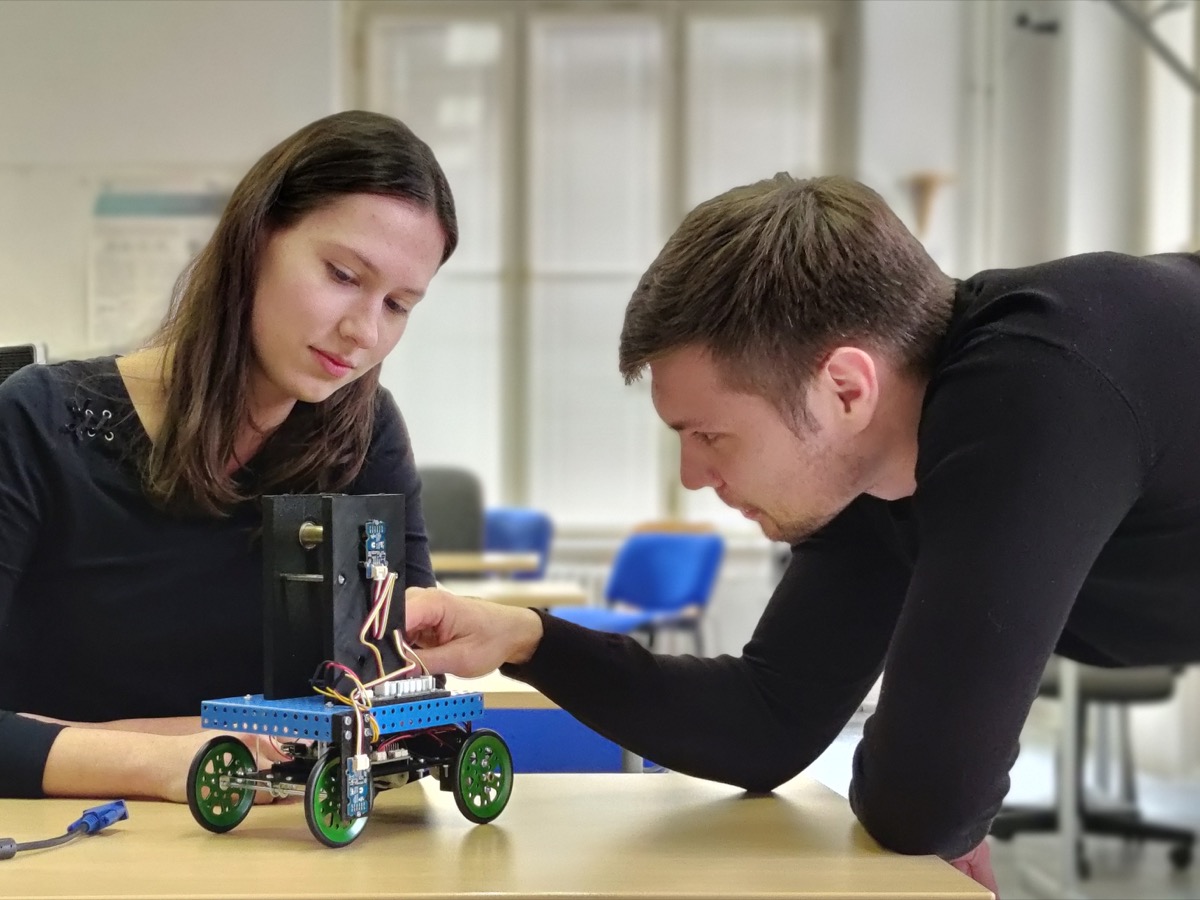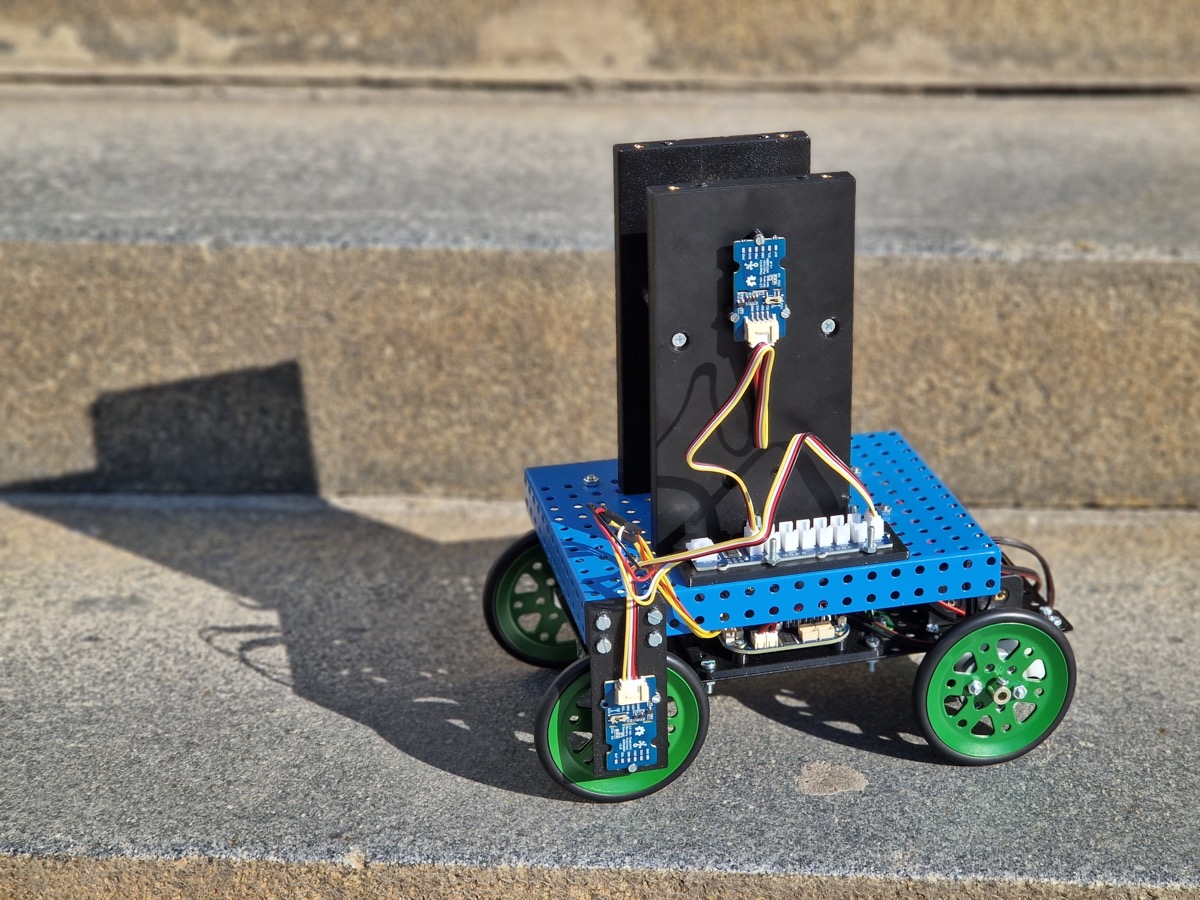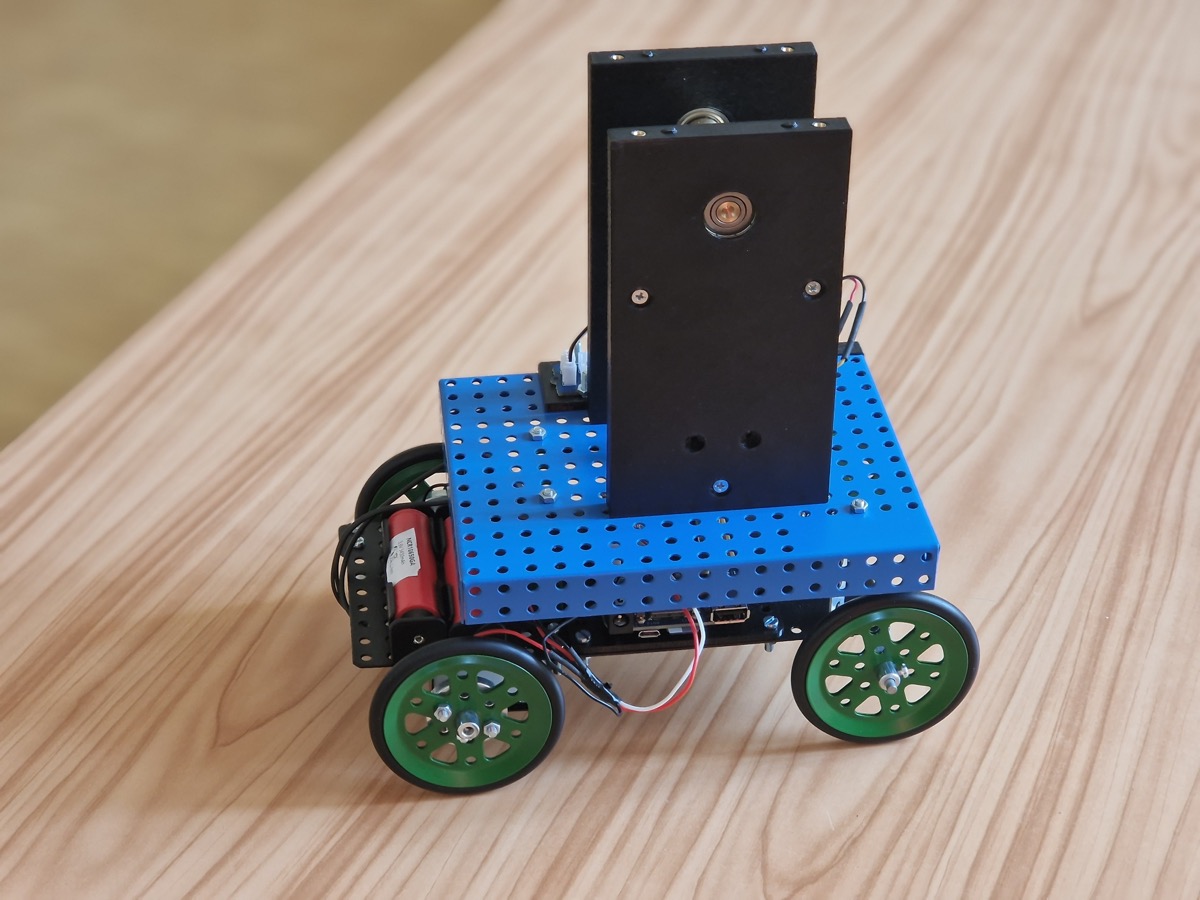Labs Can Move Back Home or to the Dorms. Students of the CTU Faculty of Electrical Engineering Have Been Given a Unique Teaching Tool
Teachers of the Department of Control Engineering of CTU FEL developed and provided students with home robotic laboratory sets. Thanks to a special teaching robot, the demanding subject of Automatic Control, including lectures, exercises and laboratories, can now be studied completely remotely. The concept of a home lab, which only a few top universities in the world are experimenting with in this field, came about during the lockdown. Currently, the department is also deploying robots in standard semester classes and is about to test their use across the entire Cybernetics and Robotics study programme.
The pandemic, along with the recurrent imposed social distancing, could be perceived solely as a problem or as a challenge for new opportunites as well. Teachers from the Department of Control Engineering at the Faculty of Electrical Engineering, set out to find a way to replace the robotic laboratories where students could normally put into practice their theoretical knowledge acquired in the Automatic Control course. And so began the development of a home robotics laboratory, which is now becoming part of the standard curriculum.
A robotic set that lets one to study from home
The result had to meet two basic criteria - be affordable and at the same time allow the application of automatic control systems on several levels. From using Lego kits, the team switched to Czech Merkur building kit, which allowed for greater robustness and precision. The result is the second prototype of the pendulum rover, which is equipped with a pair of motors, several sensors and a programmable Beaglebone controller. Teachers and senior students were involved in the development and assembly. The whole project can be described as a creative process in which the teachers themselves test the possibilities that the new approach brings.
"The issue of control systems is very specific. In their practical application, it is not possible to work only with models, because the parameters that reality brings are missing. It was necessary for the students to test in practice how their code would be affected by signal noise, less or more inaccuracy of sensors or different adhesion or friction of driving surfaces," says Doc. Tomáš Haniš from the Department of Control Engineering. "The fact that a robot built from a kit is not completely accurate and has to work with deviations is ultimately an advantage. It makes students better prepare for real life conditions, where they will have to solve real situations, not theoretical problems."
A personalized lab for every student
The robotics home lab project is still in development, and is currently being pursued by a third-year student as part of his bachelor's thesis. The robotic learning vehicle has been a success with students and lecturers alike and is being considered for wider involvement across the Cybernetics and Robotics programme courses. Currently, students are focusing on the design of the control system, and in the future they could also design structures suitable for the tasks at hand.
The home lab solution has brought many benefits to everyday teaching. Students can still work when they want, they are not stressed by a fixed slot in the labs, they know their robot and can write a tailored program for it. The seminars themselves are then more for collaborative discussions and finding solutions to potential problems. The involvement of the home robotics lab thus continues the approach of "reversed learning" and animated YouTube lectures that Doc.Zdeněk Hurák introduced at the department several years ago.
The department was able to fund the project with money earned from contract research for companies. The cost of materials for a basic version of the robot is around CZK 5,000, and although some service costs have to be factored in, it allows students to carry out experiments and measurements on the level of laboratory equipment worth hundreds of thousands of crowns. The aim is for every student in the course to have their own home laboratory.
A device for distance learning was also developed at the Department of Measurement
In 2020, researchers from the Department of Measurement developed a device that enabled practical teaching of high school and university students from home during the coronavirus restrictions. The innovative LEO (Little Embedded Oscilloscope) device can be used as an oscilloscope, voltmeter, function generator, DC source, pulse generator, counter or logic analyser.



